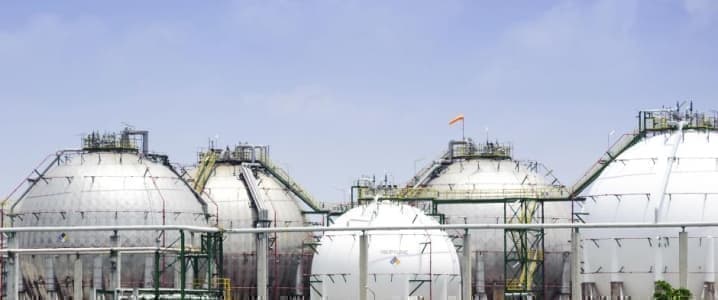The European Union’s strength is its ability to shield its economy from the outside world and pursue integration between member states. Cooperation within the bloc is based on both liberal economic market principles and political solidarity between states. The current European gas market, however, is in turmoil because neither is being pursued when it comes to energy. This has led to two interdependent developments: the construction of additional LNG capacity and Eastern Europe’s battle to constrain Gazprom’s market access.
The EU’s energy policy aims to strengthen the internal market while at the same time giving member states relative independence to determine their national energy mix. These assumptions have in some cases become contradictory due to political developments within and between member states. Poland, for example, successfully filed a case with the European Court of Justice to restrict Gazprom’s access to the Opal pipeline. The ruling could have a far-reaching effect on future projects.
Solidarity vs. confrontation
The case involved the European Commission’s decision from 2016 to grant Gazprom full access to the Opal pipeline, which previously had a limited capacity reserved for Nord Stream 1. The ECJ, however, ruled that the decision is “in breach of the principle of energy solidarity” because the Commission failed to make a proper consideration between Germany’s interests and the negative impact on the other member states.
More precisely, “the commission did not carry out an examination of the impact of the modification of the exemption regime for the Opal pipeline on Poland’s security of supply”, according to the ECJ.
The ruling supports Poland’s view that Germany is not acting under the EU's solidarity principle. However, the same could be said of Warsaw because Berlin's energy policies concerning the ‘Energiewende’ and the commitment to phase out coal and nuclear will have a profound effect on the country’s production capacity. Despite the growth of renewables, Germany will need alternative production capacity to replace intermittent wind and solar power. Currently, natural gas is the only low-carbon and affordable option available to Berlin. Therefore, the argument goes, neighboring countries should take Germany’s limited alternatives into consideration. Related: Saudi Aramco: We Never Asked Iraq For Extra Oil
Furthermore, the ruling could have a significant impact on other major energy projects currently under construction such as Nord Stream 2. Although the pipeline will be completed, probably with some delay, it could create a precedent for access to connecting infrastructure. While Gazprom is studying the legal and commercial consequences of the decision, the ruling does create uncertainty concerning the operation of EUGAL, a new pipeline intended for Nord Stream 2.

Fortunately for the involved companies, Germany’s deputy economy minister, Thomas Bareiss, recently stated that Germany is close on reaching a decision with the EU on the connecting onshore infrastructure of Nord Stream 2.
Moving towards LNG
A popular alternative to achieve a reasonable level of energy security for an affordable price is LNG. Although there is significant spare pipeline capacity available with primarily Russia, political motives impede any full utilization of the infrastructure. The EU’s has used a twofold approach to improve energy security: first, the functioning of the market has been improved by increasing competition and curbing monopolization regarding access to infrastructure. Second, reverse flow technology has been installed in critical regions such as Eastern Europe, where historically natural gas flowed from the east to the west. Related: Is Libya Facing A New Oil Crisis?
However, several EU member states are opting for additional LNG gasification facilities. The decision is even more striking when taking into account the availability of 230 bcm LNG import capacity, which between 2008 and 2014 had a utilization rate of 20 percent. Until 2021 capacity will grow even further. Although this year record number of shipments have reached Europe’s shores, imports will likely decrease when prices start rising again.
The intention to increase LNG capacity is prompted by one apparent advantage the technology offers to host countries: flexibility. Although shipped gas is, usually, more expensive than piped energy, the availability of ‘choice’ strengthens energy security. Germany’s decision to construct at least one LNG regasification plant on its northern shore is an example of political arguments overruling economic ones.
The inevitability of Russian gas
ADVERTISEMENT
Despite the aspiration of certain countries to limit the access of Russian gas to Europe, Gazprom still controls a third of the natural gas market. The recent ruling by the ECJ and the construction of LNG facilities are aimed at improving energy security and preventing Russia from acquiring political influence in the EU. However, the European gas market is not the only one transforming, so is Russia’s.
Moscow has clearly stated its intention to become a dominant player in the global LNG market. Novatek is already a promising company, which is operating one of the world’s largest and most advanced liquefaction plants with a second facility on the drawing board. Also, Russian LNG cargoes have already reached the U.S. and Lithuania. Therefore, trying to limit Russian gas from entering the EU is practically impossible to achieve: Russian energy will keep coming for the foreseeable future.
By Vanand Meliksetian for Oilprice.com
More Top Reads From Oilprice.com:
- Oil Prices Up As Iran Prepares For "All Out War"
- Iran’s Supreme Leader Approved Saudi Attacks: Washington
- China Just Got Handed The Oil Deal Of A Lifetime



















And as if this isn’t enough, Russia’s drive to take a share of the EU’s fast-growing LNG market is accelerating. Russia’s gas company Novatek with its huge Arctic reserves and one of the world’s largest and most advanced liquefaction plants will soon be flooding the EU with shipments of LNG.
Therefore, trying to limit Russian gas and LNG from entering the EU is like swimming against the tide. Poland and other Baltic states should save themselves the trouble.
Dr Mamdouh G Salameh
International Oil Economist
Visiting Professor of Energy Economics at ESCP Europe Business School, London